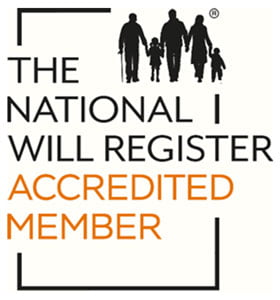How the law could help families keep more memories alive
If I asked you to list everything you own, would you think about the camera roll on your smartphone?
People tend not to see digital assets, like photos, music playlists, social media accounts, as ‘assets’ in the usual sense. Aside from cryptocurrency, these things may not hold a recognisable financial value or represent something similarly tangible to a home, an engagement ring or money in the bank. But digital assets exist, and they outlive their creator or owner. And for loved ones left behind, digital assets maintain an important connection to the person they have lost.
As the number and types of digital assets have grown, so too have issues encountered by people who want to access them following a person’s death. For good reason, password and data protection is robust. And while it would seem sensible to allow a daughter to access the photos on her deceased mother’s phone, or a widower to get into his wife’s Facebook account, this has historically been less than straightforward. It is a situation that has increased the pain and suffering felt after a loved one’s passing. And it has led to a Private Members’ Bill that is making its way through parliament.
The Digital Devices (Access for Next of Kin) Bill would give a grieving relative the right to access their loved one’s digital data. It also places an onus on tech companies to facilitate this, by unlocking devices for which people don’t have access codes.
The Bill has some way to go before becoming law, but I very much hope that its journey leads to these significant changes being made. Clients who come to see me after the death of a loved one are often overwhelmed by the formalities that need to happen. Everything, from the clearing out of clothes from the wardrobe, to the gathering in and division of assets and liabilities, places a strain on already fragile people who are doing their best to get through the hardest of times. To then be faced by a brick wall when attempting to retrieve their loved one’s digital data has felt an unfair additional challenge.
So, the Digital Devices Bill is something I wholeheartedly support. It should remove a significant disadvantage currently suffered by families who simply want to keep memories alive and prevent digital assets from becoming lost. But there are also things that each of us can do now to make the future process of administering our estates as straightforward as possible for our loved ones.
I would urge anyone preparing for the years ahead to get specific advice on how best to deal with digital assets as part of the process of writing a Will or a Lasting Power of Attorney. (It’s important to understand, as a starting point, whether each of these assets is owned outright by you, or whether it is licensed to you, for example.) Working through this now will reap rewards, leaving fewer difficulties for loved ones to navigate in the years to come.
For advice about organising your affairs, or specifically about digital assets, contact Emma Howlett or a member of the Private Client team 0808 256 2917.







